By Makram Rabah*
One thing that history has taught us is that man’s ability to think of creative ways to hurt his fellow man indeed has no limits.
This pinnacle quest for violence is perhaps further augmented in civil wars as communities, for a number of reasons ranging from the racial to the religious and the plain ideological, tend to commit the most heinous crimes.
Events transpiring in Syria over the last three years, as well as the more gruesome things to come, are a living embodiment of the aforementioned.
Also Read: Boycott of Zionism, The Most Powerful Weapon
The siege of a small town in the Al-Zabadani region, northwest of the Syrian capital Damascus, however, has reminded us all that there are a few more ways to kill. Madaya, standing at 1,400 meters (4,600 feet) above sea level, has been besieged by the hordes of the Syrian regime and their main Iranian/Lebanese ally, Hezbollah.
Since July 2015, Hezbollah has spearheaded an alleged drive to liberate Al-Zabadani from what they brand as terrorist elements.
Hassan Nasrallah, the secretary general of Hezbollah, did not shy away from sanctifying this battle as a further step towards the liberation of the Holy Lands by declaring that “the road to al-Quds [Jerusalem] passes through al-Qalamoun, Zabadani, Hasaka, Homs and Aleppo.”
This vigor and the ultimate belief in the ease of the task ahead would soon change as Nasrallah and his troops were bogged down in a difficult confrontation with Syrian rebels in the region.
Also Read: Nuclear Technology: Harm and Benefit from the Qur’anic Perspective
Having failed to achieve their goals, these foreign invaders transformed into a besieging force of a few towns in the area, Madaya being one of these. Naturally, the aim of this siege was to crush the defenders of this town either by brute military force or starvation.
Shortly after the start of the battle, however, the Syrian rebels would wage their own counterattack on two Shia villages, Kefraya and Foua, in the Idlib region, forcing Hezbollah to reexamine its choices.
The tactic Hezbollah opted for could prove to be counterproductive or inefficient at least. Famine as a political and military tool has been employed throughout the ages. Both Stalin and Hitler, even before the outbreak of the Second World War, used this weapon to kill off millions of people in Poland and the Ukraine respectively.
“Holodomor”, or extermination by hunger, proved to be an extremely efficient weapon in killing the millions these dictators deemed unfit to live.
Also Read: Gaza Cries Out, the World Stays Silent: A Wounded Humanity
Right across the border from Syria, the Lebanese have also utilized this weapon throughout their own civil war from 1975 to 1990.
In 1976, the Lebanese Front, a coalition of right-wing parties, laid siege to the Palestinian refugee camps of Tel al-Zaatar. This siege, which was coincidentally supported by the Syrian regime and its president Hafez al-Assad, led to the eventual storming of the camp and the killing and displacement of its entire population.
In 1983, the triumphant forces of the Druze Progressive Socialist Party (PSP), after driving out the Maronite Lebanese Forces from southern Mount Lebanon, were able to lay siege to Deir al-Qamar, one of the biggest Christian towns in the Shouf Mountains.
This siege, which involved more than 20,000 refugees and militants, lasted for almost 100 days and was used by both sides to score points.
Also Read: Indo Defence Expo and Forum; Sharing Responsibility of Humankind and Environment
On one hand, the Druze wanted to show how the Lebanese Forces militia had used Christian civilians as human shields while on the other, the Lebanese Forces wanted to win over worldwide public opinion by drawing attention to the plight of their people and their massacres by the ruthless Druze.
Consequently, the PSP limited the entry of food and supplies to the town and drove the inhabitants to the verge of starvation.
In 1985, the Shia Amal Movement, acting on behalf of the regime of Hafez al-Assad, waged what commonly became known as the War of the Camps, which was a final push by the Syrians and their allies to eradicate what remained of the Yasser Arafat and the Palestinian Liberation Organization influence in Lebanon.
Over the next two years, Amal would lay siege to different refugee camps around Lebanon, which would lead to dire humanitarian consequences and the death of hundreds of people on both sides.
Also Read: Safiya Saeed: From Somali Migrant to First Hijab-Wearing Mayor of Sheffield
While laying siege as a weapon of war is not novel, Madaya certainly stands out in many ways. First and foremost, contrary to the examples cited above, Hezbollah is and will remain a foreign entity occupying Syrian land and starving Syrian nationals.
Moreover, while the Syrian opposition has been accused by the regime of inflating the facts and overstretching the truth vis-a-vis the blockade, what remains certain, at least to neutral observers and the various humanitarian agencies involved, is that the situation in Madaya is subhuman and needs to be immediately addressed.
More dangerously still, by continuing to punish the Sunni Syrian inhabitants of this town, Hezbollah is placing the entire Lebanese Shia at risk and, if not now perhaps in the future when the tides shift, Hezbollah will realize that it is too costly to keep wasting men and resources to try to resurrect the Baath Party and the rule of Bashar al-Assad.
In response to this, a group of anti-Hezbollah Shia activists have issued a public condemnation of the siege and what they described as a Syrian holocaust and demanded the immediate withdrawal of all Lebanese militants fighting with the regime forces in Syria.
Also Read: Why Food Safety is Essential During Hajj Services?
At a time when Hezbollah and their fellow travelers believe that brute force can lead to the salvation of their local and regional standing, one ought to reflect on the Lebanese experience in civil strife and remember that going all the way in civil war never yields a positive effect.
Furthermore, while Hezbollah, and Bashar al-Assad by extension, can keep peddling the anti-terrorism rhetoric, the real terrorists are the ones preventing infants and civilians from getting access to their basic right, food and safety.
* Makram Rabah is currently a doctoral candidate at the Department of History at Georgetown University, Washington DC. Rabah’s research interests include the modern Middle East, the modern history of Lebanon, the Lebanese Civil War and the role of memory in the reconciliation process. He is also the author of groundbreaking book entitled, A Campus at War: Student Politics at the American University of Beirut 1967-1975 (Nelson Publications, 2009).
** The views expressed in this article belong to the author and do not necessarily reflect the editorial policy of Anadolu Agency.
Also Read: Indonesia Sign Language Mushaf Qur’an; A Sustainable Gift in Celebrating Pancasila Birthday
(P010/R03)
Mi’raj Islamic News Agency (MINA)
Also Read: Leila Khaled, The Icon of Palestinian Women’s Resistance





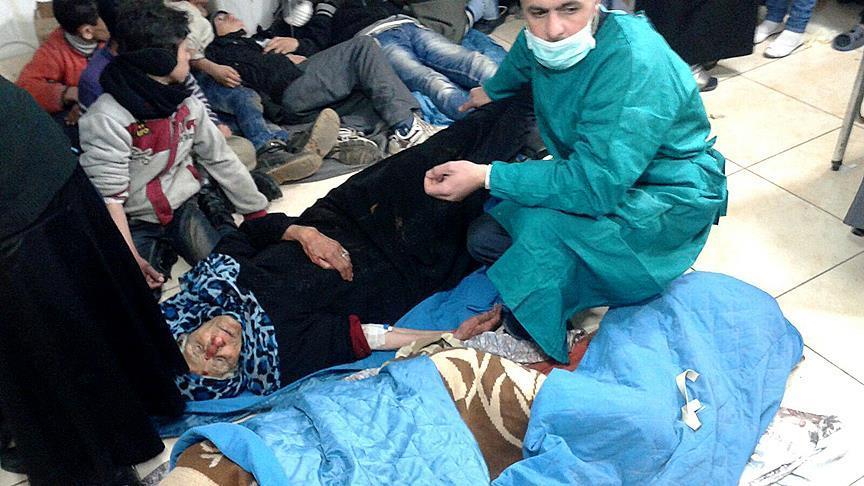


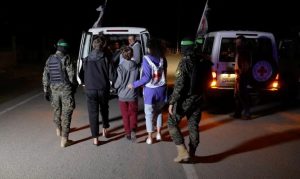

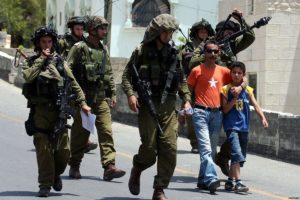

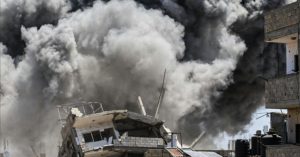
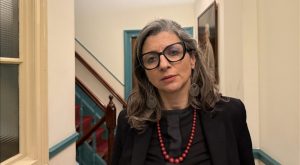
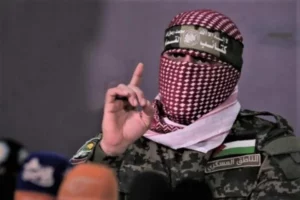

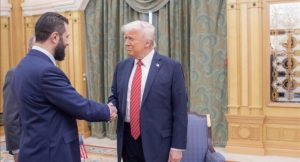

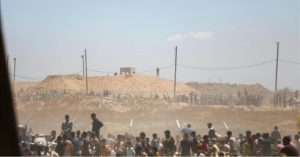
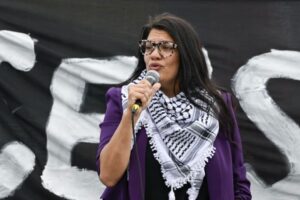
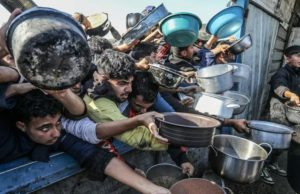
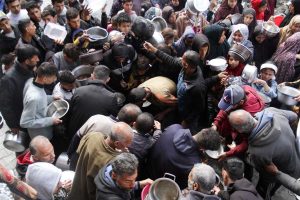



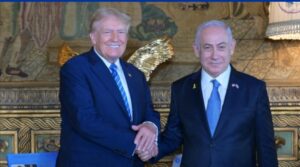

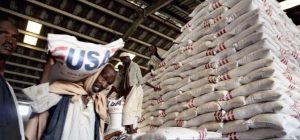
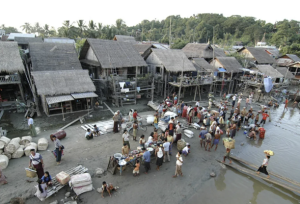
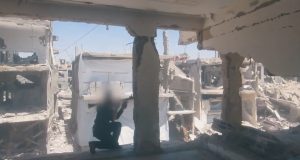

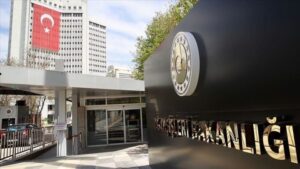
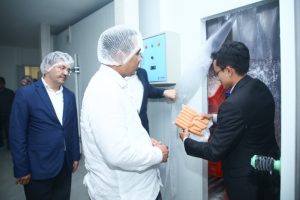
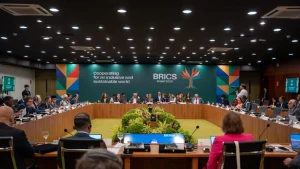



 Mina Indonesia
Mina Indonesia Mina Arabic
Mina Arabic